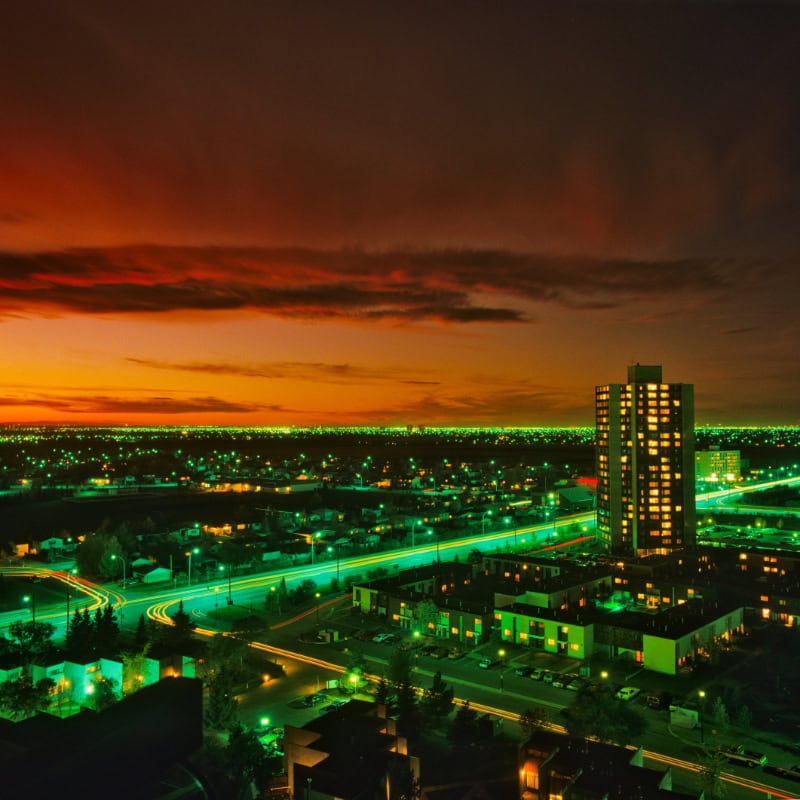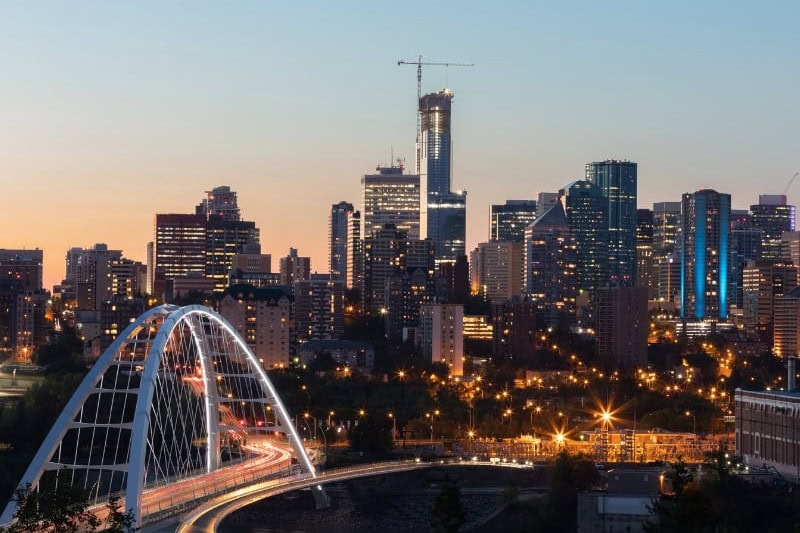Nestled in the heart of Alberta, Edmonton is a city that blends urban sophistication with natural beauty. Known as the “Gateway to the North,” Edmonton offers a thriving economy, diverse cultural experiences, and a welcoming community for newcomers. Whether you’re moving to Edmonton for work, education, or a fresh start, the city provides a myriad of opportunities to help you flourish.
Edmonton’s vibrant arts scene, numerous festivals, and extensive park system make it an attractive destination for individuals and families alike. The city’s strong economy, driven by industries such as energy, technology, and education, ensures a wealth of job prospects. As you embark on your journey in moving to Edmonton, this guide will provide you with essential information to make your move as smooth and successful as possible.
In this guide, we will explore choosing the right neighborhood, understanding the job market, and much more to help you settle into your new life in moving to Edmonton.
Immigration news directly into your inbox
Choosing the Right Neighborhood: Where to Live in Edmonton
When moving to Edmonton, choosing the right neighborhood is crucial to ensuring a comfortable and fulfilling lifestyle. Edmonton is a city of diverse communities, each with its own unique character and amenities. Here are some top neighborhoods to consider:
- Downtown: Ideal for those who enjoy an urban lifestyle, Downtown Edmonton offers a bustling atmosphere with numerous restaurants, shops, and cultural attractions. Living here means you’re close to the action, with easy access to public transportation and major employment hubs.
- Strathcona: Known for its historic charm and vibrant arts scene, Strathcona is perfect for those who appreciate a bohemian vibe. This neighborhood is home to the famous Whyte Avenue, where you can find eclectic shops, cafes, and theaters.
- Westmount: If you prefer a quieter, family-friendly environment, Westmount might be the right choice. With beautiful tree-lined streets and proximity to good schools and parks, it’s a great place to raise a family.
- Riverbend: Located in the southwest, Riverbend is an affluent area with excellent schools and scenic parks. It’s perfect for professionals and families looking for a peaceful, upscale neighborhood.
- Mill Woods: A diverse and affordable area, Mill Woods offers a variety of housing options and community amenities. It’s a great choice for newcomers seeking a welcoming and multicultural environment.
- Summerside: Known for its man-made lake and resort-style living, Summerside offers a unique suburban experience. Residents can enjoy recreational activities like kayaking and fishing, making it a great option for outdoor enthusiasts.
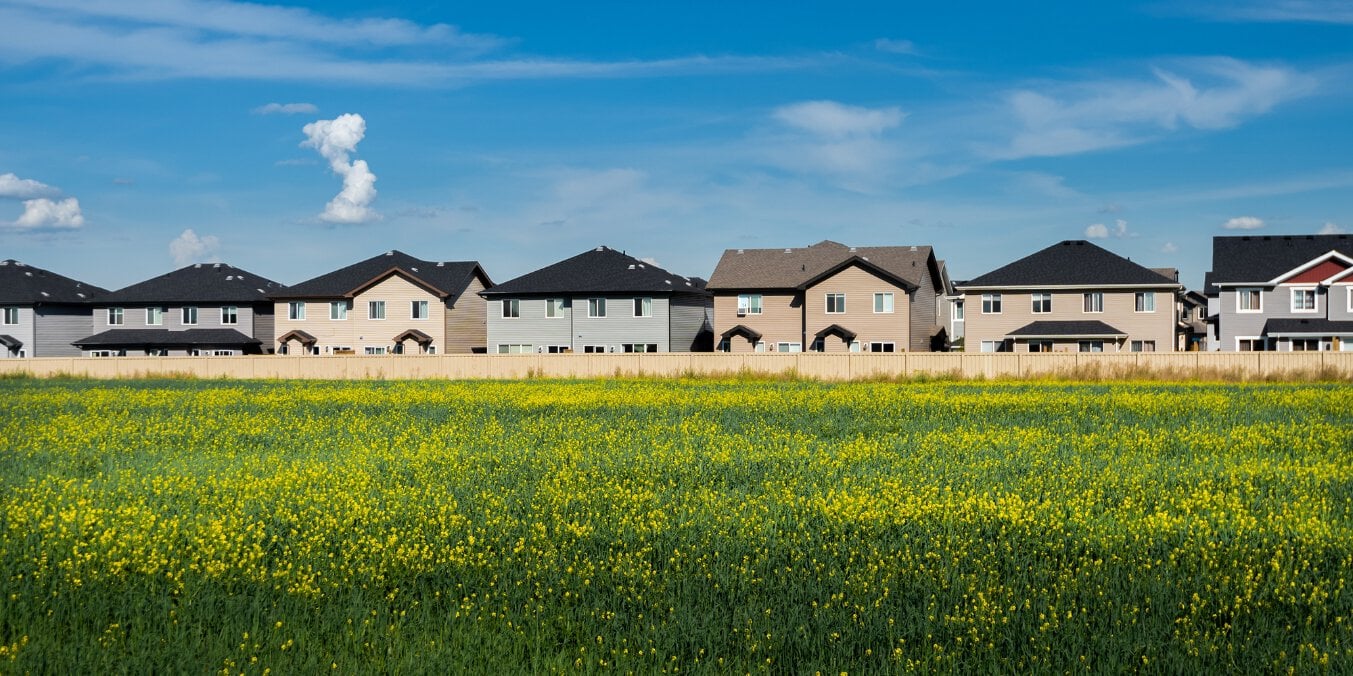
Understanding the Edmonton Job Market
Edmonton boasts a robust job market with opportunities across various sectors. The city’s economy is diverse, providing ample employment options for newcomers. Key industries in Edmonton include:
- Energy: As the heart of Alberta’s oil and gas industry, Edmonton offers numerous job opportunities in energy-related fields. Positions range from engineering and project management to environmental science and skilled trades.
- Technology: Edmonton is emerging as a tech hub, with a growing number of startups and established tech companies. The city’s tech sector is expanding, providing jobs in software development, IT services, and innovation.
- Education: Home to several universities and colleges, Edmonton has a strong education sector. Opportunities exist for educators, administrative staff, and researchers.
- Healthcare: Edmonton’s healthcare system is extensive, with many hospitals, clinics, and research institutions. Jobs in this sector include positions for doctors, nurses, allied health professionals, and support staff.
- Construction: The ongoing development and infrastructure projects in Edmonton create a steady demand for construction workers, engineers, and project managers.
- Retail and Services: The retail and service industries are thriving in Edmonton, offering a wide range of job opportunities in sales, customer service, and hospitality.
- Government and Public Administration: As the capital city of Alberta, Edmonton has numerous employment opportunities within provincial government departments and agencies.
When moving to Edmonton, it’s essential to understand the local job market to align your career goals with the available opportunities. Utilize resources such as online job boards, local recruitment agencies, and networking events. The city’s strong economic foundation and diverse job market make it an ideal destination for job seekers from various backgrounds.
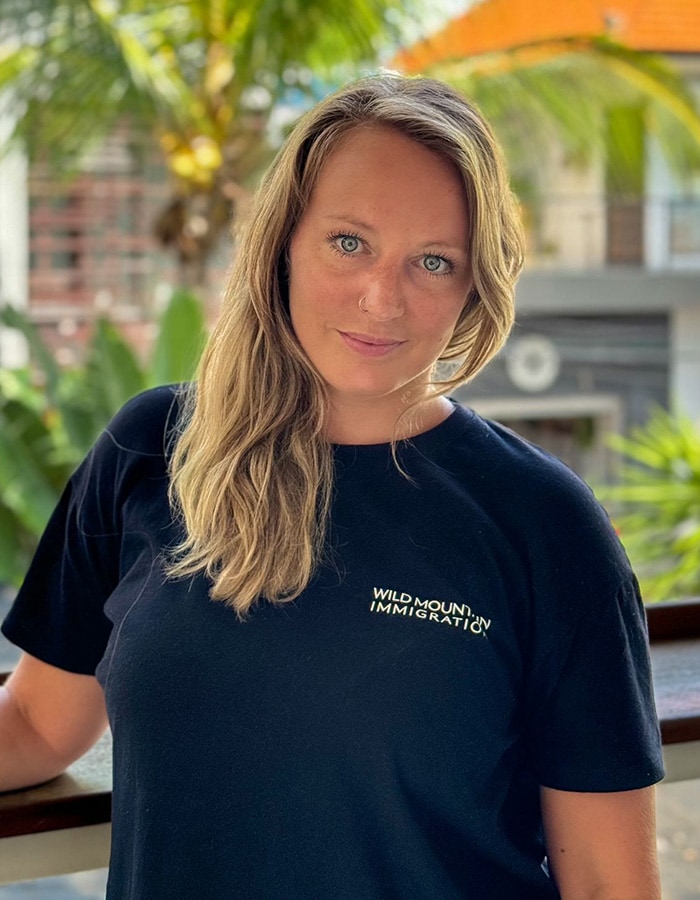
Canadian Immigration Consultant
Need help with your immigration journey in Edmonton?
Our professional team provides personalized support to guide you through the complex process. From work visas to permanent residency, let us help you achieve your goals.
The Cost of Living in Edmonton: Budgeting for Your Move
Understanding the cost of living is a critical aspect of planning your move to Edmonton. By knowing what to expect in terms of expenses, you can create a realistic budget and ensure a smooth transition.
- Housing Costs: The cost of housing in Edmonton varies depending on the neighborhood and type of accommodation. On average, renting a one-bedroom apartment in the city center costs around $1,500 per month, while outside the city center, it drops to about $1,250 per month. If you’re looking to buy, the average price per square meter in the city center is approximately $4,000.
- Utilities: Monthly utility costs for a standard apartment, including electricity, heating, cooling, water, and garbage, typically range from $150 to $200. Internet services add another $60 to $80 per month.
- Groceries: Grocery expenses in Edmonton are relatively moderate. A single person can expect to spend around $300 to $400 per month on groceries, while a family of four might spend between $700 and $900.
- Transportation: Public transportation in Edmonton is affordable and efficient. A monthly transit pass costs about $100. If you prefer to drive, consider costs for fuel, insurance, and maintenance. Gas prices are usually around $1.20 per liter, and annual car insurance can range from $1,200 to $1,500.
- Healthcare: While basic healthcare is covered under Alberta’s health insurance plan, additional medical expenses such as dental care, prescription medications, and optical services might require supplementary insurance or out-of-pocket payments.
- Entertainment and Dining: Edmonton offers a variety of entertainment and dining options. A meal at an inexpensive restaurant costs about $15, while a three-course meal for two at a mid-range restaurant can be around $70. Movie tickets are approximately $15 each, and a fitness club membership is about $50 per month.
- Education: If you have children, consider the cost of education. Public schools are free, but private school tuition can range from $5,000 to $20,000 per year. Additionally, there may be costs for school supplies, extracurricular activities, and uniforms.
By understanding these costs and planning accordingly, you can ensure that moving to Edmonton is financially manageable. Proper budgeting will help you settle into your new life with confidence and stability.
Navigating Edmonton's Real Estate Market: Renting vs. Buying
Deciding whether to rent or buy a home in moving to Edmonton is a significant decision that depends on your financial situation, lifestyle, and long-term plans. Here are some key factors to consider:
Renting in Edmonton
Renting can be a flexible and less stressful option, especially for newcomers who are still getting to know the city. Here are some benefits and considerations for renting:
- Flexibility: Renting allows you to explore different neighborhoods without committing to a long-term investment. This is ideal if you’re unsure which area suits you best or if your stay in Edmonton is temporary.
- Lower Upfront Costs: Renting typically requires a security deposit and the first month’s rent, which is much less than the down payment needed to buy a home. This makes renting more accessible for those who need time to save money.
- Maintenance and Repairs: As a renter, you are not responsible for maintenance and repair costs. Landlords usually handle these expenses, reducing your financial burden.
- Lease Terms: Rental agreements in Edmonton can range from month-to-month to one-year leases. Make sure to understand the terms and conditions before signing a lease to avoid any surprises.
Buying in Edmonton
Buying a home is a significant investment that can offer stability and long-term financial benefits. Here are some reasons to consider buying:
- Equity Building: Homeownership allows you to build equity over time. As you pay down your mortgage, you increase your ownership stake in the property, which can be a valuable financial asset.
- Stability: Owning a home provides long-term stability and the freedom to personalize your living space. It can also offer a sense of community as you establish roots in a neighborhood.
- Potential Appreciation: Real estate in Edmonton has the potential to appreciate over time, providing a return on your investment. However, market conditions can vary, so it’s important to consider this carefully.
- Tax Benefits: Homeowners may be eligible for tax deductions on mortgage interest and property taxes, which can result in significant savings.
Edmonton Real Estate Market Insights
The Edmonton real estate market offers a variety of housing options, from modern condos and townhouses to single-family homes. Here are some tips for navigating the market:
- Research Neighborhoods: Take the time to research different neighborhoods to find one that meets your needs and preferences. Consider factors such as proximity to work, schools, amenities, and public transportation.
- Work with a Realtor: A knowledgeable realtor can provide valuable insights into the market, help you find suitable properties, and guide you through the buying process.
- Get Pre-Approved for a Mortgage: If you’re considering buying, getting pre-approved for a mortgage will give you a clear understanding of your budget and make you a more attractive buyer to sellers.
- Understand Market Trends: Keep an eye on market trends to make informed decisions. This includes monitoring average home prices, inventory levels, and days on the market.
By weighing the pros and cons of renting versus buying and understanding the real estate market, you can make a decision that aligns with your financial goals and lifestyle preferences in moving to edmonton.
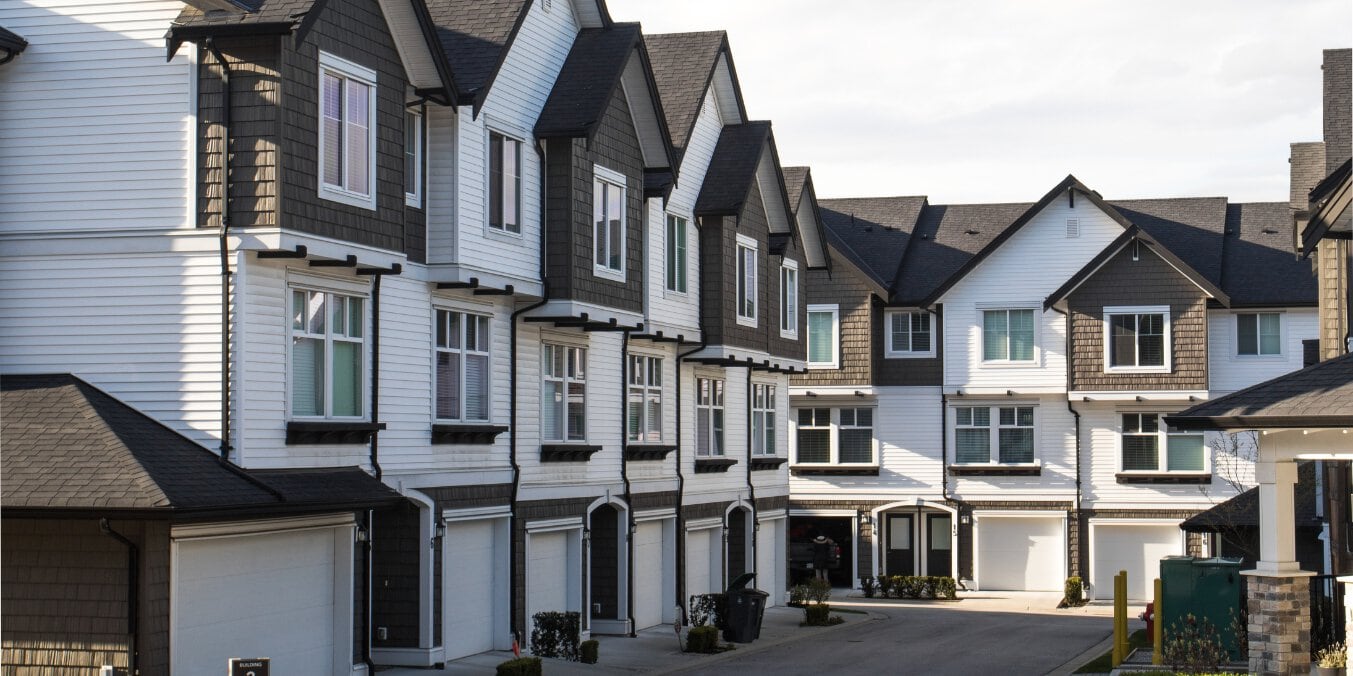
Enrolling in Schools: Education Options in Edmonton
For families moving to Edmonton, ensuring a quality education for their children is a top priority. Edmonton offers a variety of educational options, from public schools to private institutions, catering to different needs and preferences. Here’s a guide to help you navigate the education system in Edmonton:
Public Schools
The Edmonton Public School Board (EPSB) and the Edmonton Catholic School District (ECSD) operate numerous schools across the city, providing comprehensive education from kindergarten through grade 12.
- Edmonton Public School Board (EPSB): EPSB offers a wide range of programs, including bilingual education, international baccalaureate (IB), advanced placement (AP), and special needs support. Schools are assigned based on catchment areas, so your neighborhood will determine which schools your children can attend.
- Edmonton Catholic School District (ECSD): ECSD provides education with a Catholic foundation, emphasizing faith-based learning along with academic excellence. Similar to EPSB, school assignments are based on geographic boundaries.
Private Schools
For those seeking alternative education options, Edmonton has several private schools offering various curriculums and specialized programs.
- Charter Schools: These are publicly funded but operate independently of the school boards. They often focus on specific educational philosophies or teaching methods.
- Independent Private Schools: These schools charge tuition fees and may offer unique educational approaches, such as Montessori, Waldorf, or religious-based education. They often have smaller class sizes and more individualized attention.
- International Schools: If you’re moving to Edmonton from another country, international schools can provide a familiar curriculum, such as the British or American system, and help ease the transition for your children.
Post-Secondary Education
Edmonton is home to several reputable post-secondary institutions, making it a great place for higher education.
- University of Alberta: One of Canada’s top universities, it offers a wide range of undergraduate, graduate, and professional programs. The University of Alberta is renowned for its research facilities and diverse academic offerings.
- MacEwan University: Known for its focus on undergraduate education, MacEwan University provides a supportive learning environment with a variety of programs in arts, science, business, and health.
- Northern Alberta Institute of Technology (NAIT): NAIT specializes in technical education and applied research, offering diplomas, certificates, and apprenticeship training in various trades and technologies.
Enrollment Process
Enrolling your children in school requires some preparation. Here are the general steps:
- Research Schools: Start by researching schools in your chosen neighborhood. Visit school websites, read reviews, and, if possible, tour the schools.
- Gather Documents: You will need to provide proof of residency, your child’s birth certificate or passport, and previous school records. Immunization records may also be required.
- Register: Contact the school or school board to begin the registration process. Deadlines and procedures can vary, so it’s essential to check with each school.
- Meet with School Officials: Arrange meetings with principals or teachers to discuss your child’s needs and any special considerations.
By understanding the education options and enrollment process in Edmonton, you can ensure that your children receive a quality education and a smooth transition to their new school.
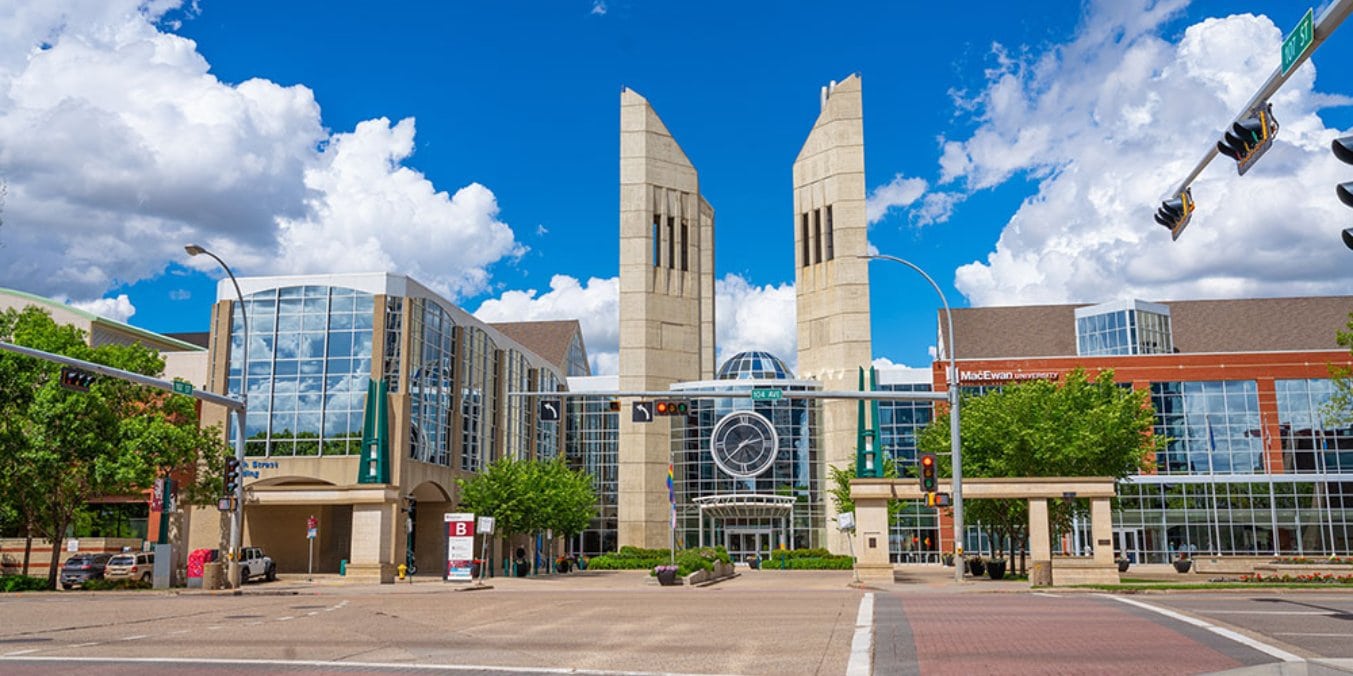
Immigration news directly into your inbox
Healthcare in Edmonton: What You Need to Know
Moving to Edmonton involves understanding the healthcare system to ensure you and your family have access to necessary medical services. Here’s what you need to know about healthcare in Edmonton:
Public Healthcare System
Canada’s healthcare system is publicly funded, providing residents with access to essential medical services without direct charges. Alberta Health Care Insurance Plan (AHCIP) covers most of the healthcare costs for residents of Edmonton.
- Alberta Health Care Insurance Plan (AHCIP): As a new resident, you need to register for AHCIP as soon as possible. This insurance covers visits to doctors, hospital stays, and necessary surgeries. You can apply online or in person at a registry office. Be sure to bring identification documents and proof of residency.
- Primary Care: Edmonton has numerous family doctors and primary care networks (PCNs) that provide comprehensive healthcare services. It’s recommended to find a family doctor to manage your healthcare needs.
- Specialized Care: For specialized treatments, Edmonton has several hospitals and clinics offering advanced medical services. Referral from a primary care physician is typically required to see specialists.
Hospitals and Clinics
Edmonton is home to several top-tier hospitals and healthcare facilities, providing a wide range of services.
- University of Alberta Hospital: A leading teaching hospital affiliated with the University of Alberta, it offers specialized services including organ transplants, neurosurgery, and cancer treatment.
- Royal Alexandra Hospital: Known for its women’s health services, including a dedicated maternal and neonatal care unit, as well as comprehensive emergency and surgical services.
- Stollery Children’s Hospital: Located within the University of Alberta Hospital, it provides specialized pediatric care and is renowned for its expertise in children’s health.
- Misericordia Community Hospital: Offers a variety of services including emergency care, orthopedic surgery, and a rehabilitation program.
Pharmacies
Pharmacies are readily available throughout Edmonton, providing prescription medications, over-the-counter drugs, and health advice. Major pharmacy chains like Shoppers Drug Mart, Rexall, and Safeway are easily accessible.
Dental and Optical Care
Mental health is an important aspect of overall well-being. Edmonton offers a range of mental health services, including counseling, psychiatric care, and support groups.
- Primary Care Networks (PCNs): Many PCNs provide access to mental health professionals, including psychologists and counselors.
- Community Mental Health Clinics: These clinics offer various mental health services and can be accessed through referrals from a family doctor.
Emergency Mental Health Services: For urgent mental health concerns, Edmonton hospitals have emergency departments equipped to handle psychiatric emergencies.
Mental Health Services
Mental health is an important aspect of overall well-being. Edmonton offers a range of mental health services, including counseling, psychiatric care, and support groups.
- Primary Care Networks (PCNs): Many PCNs provide access to mental health professionals, including psychologists and counselors.
- Community Mental Health Clinics: These clinics offer various mental health services and can be accessed through referrals from a family doctor.
- Emergency Mental Health Services: For urgent mental health concerns, Edmonton hospitals have emergency departments equipped to handle psychiatric emergencies.
Private Health Insurance
While AHCIP covers most healthcare services, private health insurance can help cover additional costs such as dental, optical, and prescription medications not fully covered by the public system. Many residents opt for private insurance to supplement their healthcare coverage.
By familiarizing yourself with Edmonton’s healthcare system, you can ensure that you and your family have access to the necessary medical services and support for a healthy life in your new city.

Getting Around: Public Transportation and Driving in Edmonton
Efficient transportation is key to settling into a new city. Moving to Edmonton offers various transportation options to help you navigate the city with ease.
Public Transportation
Edmonton’s public transportation system, managed by Edmonton Transit Service (ETS), includes buses, light rail transit (LRT), and park-and-ride facilities. Here’s what you need to know:
- Buses: ETS operates an extensive bus network covering the entire city. Buses run frequently, especially during peak hours, making it convenient to commute to work, school, or other activities.
- Light Rail Transit (LRT): The LRT system consists of two main lines, the Capital Line and the Metro Line, connecting downtown Edmonton with various neighborhoods and suburbs. The LRT is a fast and efficient way to travel longer distances within the city.
- Fares and Passes: ETS offers various fare options, including single-ride tickets, day passes, and monthly passes. A monthly adult pass costs around $100. Discounts are available for seniors, students, and low-income residents.
- Transit Apps: Utilize transit apps like Transit and Google Maps to plan your routes and check real-time bus and LRT schedules.
Driving in Edmonton
If you prefer driving, Edmonton’s well-maintained road network makes it easy to get around by car. Here are some key points for drivers:
- Driver’s License: If you’re moving to Edmonton from another province or country, you may need to exchange your current driver’s license for an Alberta license. Visit an Alberta registry office with your current license, identification, and proof of residency.
- Car Insurance: Car insurance is mandatory in Alberta. Be sure to shop around for quotes to get the best coverage and rates. Basic coverage includes third-party liability, accident benefits, and uninsured motorist coverage.
- Parking: Edmonton offers various parking options, including street parking, parking lots, and parkades. Downtown parking can be expensive, so consider using park-and-ride facilities if you commute into the city center.
- Winter Driving: Edmonton’s winters can be harsh, so prepare your vehicle for winter conditions. This includes using winter tires, keeping an emergency kit in your car, and understanding how to drive in snow and ice.
Cycling and Walking
For those who enjoy active transportation, Edmonton is becoming increasingly bike-friendly with dedicated bike lanes and multi-use trails.
- Bike Lanes: The city has implemented several protected bike lanes, particularly in downtown areas, making cycling safer and more accessible.
- Trails and Paths: Edmonton’s extensive river valley and parks system offer numerous trails and paths for walking, running, and cycling. These are great for recreational use and commuting.
- Bike Sharing: Edmonton does not have a city-wide bike-sharing program, but local businesses and community initiatives sometimes offer bike rentals.
Taxis and Ride-Sharing
Taxis and ride-sharing services like Uber and Lyft are widely available in Edmonton. These services are convenient for quick trips, airport transportation, and when public transit is not available.
- Taxis: Several taxi companies operate in Edmonton, offering reliable service throughout the city. Taxis can be hailed on the street, booked by phone, or reserved through mobile apps.
- Ride-Sharing: Uber and Lyft provide easy access to ride-sharing services via their respective apps. These services are often more affordable than traditional taxis and offer cashless payment options.
By understanding the various transportation options available in moving to Edmonton, you can choose the best method for your daily commute and explore the city comfortably and efficiently.
Winter in Edmonton: Tips for Staying Warm and Safe
Edmonton’s winters can be long and harsh, with temperatures often dropping well below freezing. However, with the right preparation and mindset, you can enjoy this season and stay comfortable. Here are some essential tips for staying warm and safe during winter in moving to Edmonton:
Dressing for Winter
- Layering: Dress in layers to trap heat and stay warm. Start with a moisture-wicking base layer, add an insulating middle layer (like fleece or down), and finish with a waterproof and windproof outer layer.
- Winter Accessories: Invest in good quality winter accessories such as hats, gloves, scarves, and thermal socks. These items help protect extremities from the cold.
- Footwear: Wear insulated, waterproof boots with good traction to prevent slipping on ice and snow. Consider adding ice grips to your boots for extra stability.
Winterizing Your Home
- Insulation: Ensure your home is well-insulated to keep heat in and cold out. Check windows and doors for drafts and use weather stripping or caulking to seal gaps.
- Heating: Keep your heating system in good working order. Schedule regular maintenance checks and replace filters as needed. Use programmable thermostats to manage heat efficiently.
- Emergency Supplies: Stock up on emergency supplies in case of power outages or severe weather. Include items like blankets, non-perishable food, bottled water, flashlights, and batteries.
Staying Safe Outdoors
- Know the Weather: Check weather forecasts regularly to stay informed about upcoming conditions. Be prepared for sudden changes in weather, especially if you plan to be outdoors.
- Limit Exposure: Try to limit the amount of time you spend outdoors during extreme cold. If you must be outside, take frequent breaks to warm up indoors.
- Be Visible: Short daylight hours and heavy snowfall can reduce visibility. Wear bright or reflective clothing to ensure you’re visible to drivers and other pedestrians.
Driving in Winter
- Winter Tires: Equip your car with winter tires for better traction on snow and ice. Winter tires can significantly improve your vehicle’s handling and safety in cold conditions.
- Emergency Kit: Keep an emergency kit in your car that includes items like blankets, food, water, a shovel, ice scraper, flashlight, and first-aid supplies.
- Drive Safely: Drive slowly and carefully on icy or snow-covered roads. Increase your following distance and avoid sudden movements that could cause your vehicle to skid.
Enjoying Winter Activities
- Embrace the Season: Edmonton offers plenty of winter activities to enjoy. Try ice skating, skiing, snowshoeing, or tobogganing in one of the city’s many parks and recreational areas.
- Festivals and Events: Participate in winter festivals and community events like the Ice on Whyte Festival, Silver Skate Festival, and the Deep Freeze Festival. These events celebrate the season with art, food, and entertainment.
- Stay Active: Staying active during winter can help you keep warm and improve your overall well-being. Join a winter sports league, take up a new hobby, or simply go for walks in the snow.
By following these tips, you can stay warm, safe, and enjoy all that winter in Edmonton has to offer. Embracing the season and being prepared will help you make the most of your new life in moving to Edmonton.
Discovering Edmonton: Culture, Parks, and Recreation
Edmonton is known for its rich cultural scene and extensive park system, offering a wide range of activities and experiences for residents. Here’s a guide to help you explore and enjoy what Edmonton has to offer:
Cultural Attractions
- Art Galleries and Museums: Edmonton boasts several top-notch art galleries and museums. The Art Gallery of Alberta features a diverse collection of contemporary and historical artworks. The Royal Alberta Museum offers exhibits on natural history, indigenous cultures, and Alberta’s history.
- Theatre and Performing Arts: The city has a vibrant performing arts scene, with numerous theatres showcasing plays, musicals, and dance performances. The Citadel Theatre and the Winspear Centre are prominent venues for live performances, including productions by the Edmonton Symphony Orchestra.
- Festivals: Edmonton is known as Canada’s “Festival City” for a reason. Year-round, the city hosts a variety of festivals, such as the Edmonton International Fringe Theatre Festival, the Edmonton Folk Music Festival, and the Heritage Festival. These events celebrate arts, culture, and community.
Parks and Outdoor Recreation
- River Valley Parks: Edmonton’s river valley is the largest urban parkland in North America, offering over 160 kilometers of maintained pathways. It’s perfect for hiking, cycling, picnicking, and bird-watching. Popular spots include Hawrelak Park, Rundle Park, and Victoria Park.
- Winter Activities: Embrace winter with activities like cross-country skiing, snowshoeing, and ice skating. Hawrelak Park and Victoria Park have popular outdoor skating rinks, while the Edmonton Nordic Ski Club offers groomed trails for skiing.
- Golf Courses: Edmonton has several public and private golf courses for enthusiasts. The Riverside Golf Course and Victoria Golf Course are among the city’s favorites, offering beautiful views and challenging layouts.
- Playgrounds and Spray Parks: Families will find numerous playgrounds and spray parks throughout the city, providing fun and safe spaces for children to play and cool off during the summer.
Recreational Facilities
- Leisure Centres: Edmonton has many recreation and leisure centers equipped with swimming pools, fitness facilities, indoor tracks, and sports courts. The Commonwealth Community Recreation Centre and Terwillegar Community Recreation Centre are popular choices.
- Fitness and Sports: Join local sports leagues, fitness classes, or gyms to stay active. Edmonton offers everything from hockey and soccer leagues to yoga and martial arts studios.
- Edmonton Valley Zoo: A family-friendly attraction, the Edmonton Valley Zoo is home to over 350 animals and offers interactive exhibits and educational programs.
Connecting with the Community
- Community Leagues: Edmonton’s community leagues are neighborhood organizations that offer recreational programs, social events, and community-building activities. Joining your local league is a great way to meet neighbors and get involved.
- Volunteering: Volunteering is a fulfilling way to connect with the community and make a positive impact. Organizations like Volunteer Edmonton can help match you with opportunities that suit your interests and skills.
- Cultural Associations: Edmonton is home to various cultural associations representing the city’s diverse population. These organizations often host events, language classes, and cultural celebrations, providing a way to connect with people who share your heritage.
By exploring Edmonton’s cultural attractions, parks, and recreational facilities, you can fully embrace the city’s vibrant lifestyle and create a fulfilling life in your new home.
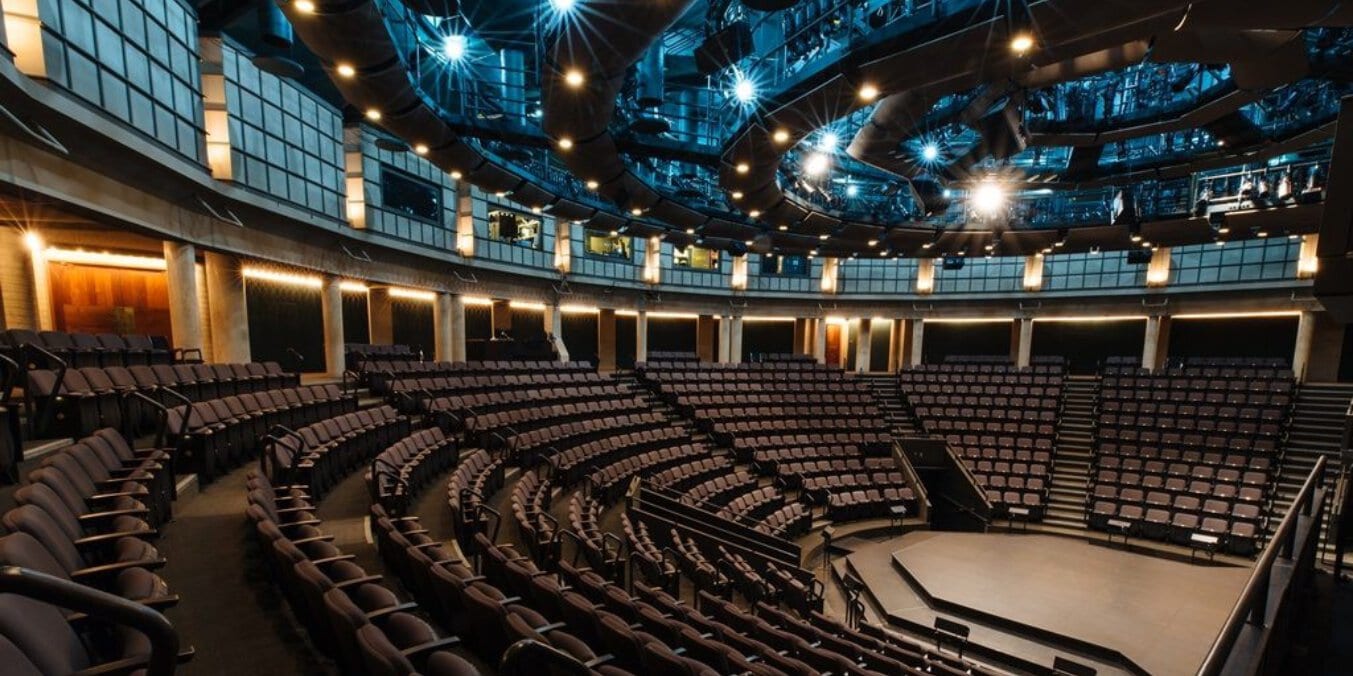
Shopping and Dining: Exploring Local Favorites
Edmonton offers a diverse and dynamic shopping and dining scene, catering to all tastes and preferences. Here’s a guide to some of the best places to shop and eat in the city:
Shopping in Edmonton
- West Edmonton Mall: As one of the largest malls in North America, West Edmonton Mall is a must-visit. It features over 800 stores, including major retailers, boutique shops, and specialty stores. The mall also boasts entertainment options like an indoor amusement park, water park, ice rink, and mini-golf.
- Downtown Edmonton: The downtown area offers a mix of high-end retailers, local boutiques, and unique shops. Visit the Edmonton City Centre mall or explore the 104th Street Promenade for a variety of shopping options.
- Whyte Avenue (82nd Avenue): Located in the historic Strathcona neighborhood, Whyte Avenue is known for its eclectic mix of shops, vintage stores, and local boutiques. It’s a great place to find unique clothing, accessories, and gifts.
- Farmers’ Markets: Edmonton has several farmers’ markets that offer fresh produce, artisanal goods, and handmade crafts. Popular markets include the Old Strathcona Farmers’ Market, City Market Downtown, and the St. Albert Farmers’ Market.
Dining in Edmonton
- Fine Dining:
- Corso 32: Known for its contemporary Italian cuisine, Corso 32 offers a refined dining experience with dishes made from locally sourced ingredients.
- Rge Rd: This restaurant emphasizes local, seasonal ingredients and offers a farm-to-table dining experience with a focus on Canadian cuisine.
- Casual Dining:
- The Next Act Pub: A favorite spot for casual dining, The Next Act Pub serves up delicious burgers, sandwiches, and craft beers.
- Tres Carnales Taqueria: For authentic Mexican street food, visit Tres Carnales Taqueria. Their tacos and guacamole are highly recommended.
- Cafés and Bakeries:
- Duchess Bake Shop: A beloved local bakery, Duchess Bake Shop is famous for its pastries, macarons, and artisanal bread.
- Transcend Coffee: For a great cup of coffee, head to Transcend Coffee, which offers expertly brewed coffee and a cozy atmosphere.
- International Cuisine:
- Padmanadi: This vegan restaurant offers delicious Indonesian and Asian-inspired dishes that even non-vegans will love.
- Sabor: For a taste of the Mediterranean, Sabor offers a menu rich with seafood, Spanish, and Portuguese influences.
- Food Trucks: During the warmer months, Edmonton’s food truck scene comes alive. Check out local favorites like Drift Food Truck (known for its gourmet sandwiches) and The Local Omnivore (offering hearty breakfast and lunch options).
Nightlife and Entertainment
- Bars and Pubs: Edmonton has a vibrant nightlife with numerous bars and pubs. Popular spots include The Black Dog Freehouse on Whyte Avenue and The Common downtown, which offers a great mix of cocktails and craft beers.
- Live Music and Events: Venues like The Starlite Room and The Winspear Centre host live music performances and events throughout the year, featuring local and international artists.
- Theatres and Cinemas: Enjoy a night out at one of Edmonton’s many theatres and cinemas. The Princess Theatre on Whyte Avenue offers an intimate movie-going experience, while larger multiplexes like Cineplex Odeon South Edmonton Common feature the latest blockbusters.
By exploring Edmonton’s diverse shopping and dining options, you can enjoy the city’s vibrant culture and make the most of your new home.
Conclusion: Embracing Your New Life in Edmonton
Moving to Edmonton marks the beginning of an exciting new chapter in your life. With its vibrant culture, diverse neighborhoods, and abundant opportunities, Edmonton is a city where you can thrive and create lasting memories. As you settle into your new home, here are some final tips to help you embrace and enjoy your new life in Edmonton:
- Stay Open-Minded and Positive
- Get Involved in the Community
- Explore and Discover
- Build a Support Network
- Stay Informed and Engaged
- Take Care of Yourself
- Set Goals and Plan for the Future
- Give Back to the Community
- Celebrate Your Achievements
By following these tips and embracing the opportunities that come your way, you can make the most of your new life in moving to Edmonton. The city’s welcoming atmosphere, diverse culture, and vibrant community provide the perfect backdrop for your new adventure.
Julce
Julce is an expert content writer specializing in topics about Canada, adept at blending practical advice with engaging stories that capture Canadian life.
Learn more about Edmonton
You will find helpful information about setting up in this vibrant and lively city.
Crunching the Numbers: Exploring the Cost of Living in Edmonton
Explore the cost of living in Edmonton, covering housing, utilities, food, and more in this concise, informative guide.
Start Your Canadian Immigration Journey
Our experts make the process clear, stress-free, and successful, so you can move forward with confidence and focus on what matters most.

Get Started Today
"*" indicates required fields
